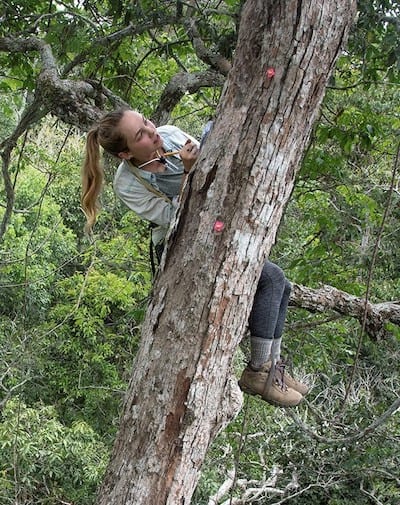How to become a botanist?
Are you fascinated by the secret lives of plants? Would you like to study the building blocks of most of the planet’s ecosystems, from microscopic algae to towering trees? Find out how to become a botanist and start your wild career!
As a botanist, you could help conserve, restore and enhance species and special sites; inform environmentally sustainable development; provide food and other human resources sustainably; control invasive species; and help others appreciate plants.
Whether you’re a budding botanist, career switcher or simply exploring potential career paths, this guide will help you understand what botanists do, and how you could become one.
Table of Contents
What does a botanist do?
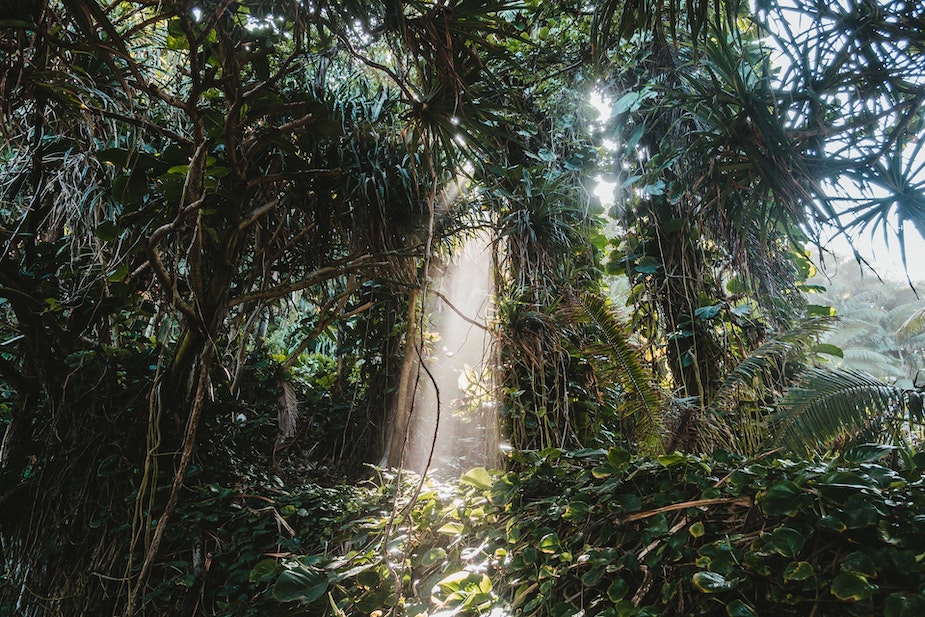
Botanists are scientists who study plants. They are also known as plant scientists, plant biologists or ‘phytologists’.
Why plants?
Aside from their fascinating traits (just think of carnivorous plants, the 20 pound Rafflesia flower and trees that talk to each other), we owe life on Earth to plants.
- Plant ecology: Studying how plants relate to their living and non-living environment.
- Physiology: Understanding how plant physiological processes are impacted by factors like climate change or pollution.
- Taxonomy: Discovering and classifying new plant species.
- Genetics: Studying the genetic diversity of plant species.
- Systematics: Studying the diversification of plants, and their relationships through time.
- Molecular biology: Studying the activities within and between plant cells at the level of cellular molecules like proteins.
- Reproductive biology: Studying plant reproduction.
- Paleobotany (or palaeobotany): Studying fossil plants.
- Ethnobotany: The study of the interrelationship between people and plants, particularly related to culture and knowledge systems.
Botanists can apply science to areas such as:
- Informing environmentally sustainable development (ecological consultancy).
- Controlling non-native and invasive species.
- Cleaning up contaminated sites (remediation).
- Feeding human populations in an ecologically-sustainable way – such as nature-friendly farming (agriculture and agro-ecology).
- Using science to inform sustainable forestry practices.
- Managing the use and development of land resources for diverse purposes – from agriculture and water to nature and tourism (land management).
- Putting a value on the benefits that nature provides us (Environmental economics).
- Understanding past environments and climates.
- Carrying out ex-situ (off-site) conservation in botanical gardens, aquariums, etc.
Botanists might also choose to specialise on specific types of plants, such as:
- Mycology: Studying fungi.
- Phycology: Studying algae.
- Tropical botany/biology: Studying tropical plants.
If you’re considering a career as a botanist, don’t limit yourself! Once trained, you might choose to become a champion of plants and educate others, bring back species from the brink of extinction or even use plants to restore past ecosystems.
Where do botanists work?

- Academia – Help create the research base that practitioners need to effectively conserve plants and habitats. Employers are typically universities and colleges, such as Oregon State University, Colorado State Forest Service at Colorado State University and the University of British Columbia.
- Charity – Contribute to not-for-profit and non-governmental conservation activities with the Charity, NGO or ‘Third Sector.’ Examples include the Royal Botanic Gardens, Kew; Plantlife, Atlanta Botanical Garden, Monarch Joint Venture, Conservation Legacy, Charles Darwin Foundation, Ecology Project International, SEED Madagascar, Osa Conservation and American Conservation Experience.
- Business – Work with for-profit private companies or consulting firms that need botanists, such as RSK Biocensus and Eco Logical Australia.
- Government – Help set regional, national or international policies, and enforce best practice with the public sector or civil service. Examples of government institutions and agencies include the Center for Environmental Management of Military Lands and the U.S. Forest Service.
- Enterprise – Join the start-up, social enterprise or innovation movement, applying commercial strategies to maximise improvements in environmental and human well-being.
Want to discover more great botanist employers? As a Conservation Careers Academy member, check out our Career Explorer database with over 30,000 jobs from around the world!
What is a typical botanist job description?

Botanist careers are diverse, so we’ve summarised common job duties for typical careers.
Field research and monitoring
As a botanist conducting field research you’ll focus on collecting data on plants and other living and nonliving aspects of the environment. Some typical botanist job duties include:
- Identifying plants in the field or collected from the field.
- Conducting vegetation surveys, habitat assessments and/or monitoring.
- Carrying out inventories for threatened, rare and special-status species.
- Mapping in the field (e.g. wetland delineations).
- Recording, inputting, analysing and/or summarising field data.
- Coordinating with landowners.
Job duties for more experienced botanists might also include:
- Planning field research and logistics
- Leading field teams
 Ecological consultancy
Ecological consultancy- Preparing reports such as botanical/ecological assessments, monitoring and management reports, restoration plans, habitat assessments, as well as bids and tenders.
- Managing ecological survey work, projects, teams and/or budgets.
- Undertaking surveys for protracted species of plants and habitats.
- Liaising with clients.
Restoration and remediation
As a botanist working in practical land management, you could find yourself:
- Removing or controlling non-native and invasive plants.
- Reintroducing threatened species in their natural habitat.
- Managing teams of interns, volunteers and/or students.
- Working on rewilding projects.
- Managing properties, carrying out stewardship of lands.
 Botanical gardens & aquariums
Botanical gardens & aquariumsAs a botanist working at a botanical garden, arboretum, aquarium, field station or similar, your job duties could include:
- Managing plant collections, such as plant ‘accessioning’ (recording) and labeling.
- Curating collections of plants, such as watering, weeding, planting and pest control.
- Planning and managing budgets.
- Conducting field work, such as seed collection, restoration and reintroductions.
- Assisting, leading or managing research, practical and/or conservation projects.
- Working with partner organisations.
- Leading, training, managing and/or mentoring volunteers, interns and/or students.
- Care of seedlings, propagation, conducting experiments.
- Planning, designing and/or delivering environmental education and interpretation, such as interpretive materials or experiential learning.
- Managing teams of botanists or team leads.
Common early to mid-career botanist job titles include: Botanist Aide, Botany Technician, Botanist, Field Botanist, Research Assistant, Research Technician, Field Technician, Seasonal Monitoring Botanist, Assistant Ecologist, Ecologist, Consultant Ecologist, Ecology Consultant, Restoration Technician, Restoration Specialist, Invasive Plant Technician, Naturalist, Monitoring Crew Leader.
Mid to senior level and specialised botanist job titles include: Riparian Botanist, Wetland Botanist Rare Plant Botanist, Horticulturist, Range Ecologist/Botanist, Principal Ecologist, Vegetation Ecologist, Senior Ecologist, Conservation Botanist, Botanical Curator, Research Leader, Taxonomist.
Want to understand what a day in the life of a botanist is really like? Read the latest Botanist Jobs | Career Stories & Advice, or check out these interviews and podcast episodes:
- Podcast: Sue Searle | Ecology Training UK
- Saving the Planet One Plant at a Time
- Work and study at one of UK’s most impressive horticultural centres – Kew Gardens
- Conservation is triage | Saving South Africa’s flora with botanist-conservationist Rupert Koopman
- A Champion of Plants – An interview with Matt Candeias, Botanist and Creator of the ‘In Defense of Plants’ Podcast
- Conserve an Orchid, Conserve an Ecosystem | Protecting Colombia’s Biodiversity
- Late Bloomer: How David Bevan’s botanical career slowly flourished
- Interview with Dr Colman O’Criodain, Wildlife Trade Specialist, WWF
- What’s it like to work as a environmental consultant?
- What jobs can ecology graduates do?
- A mammoth task: restoring an Ice-Age ecosystem to save the planet
- Sharing indigenous knowledge for a more sustainable world
- Take a holistic approach to conservation with Thrive
How much money does a botanist make?

United Kingdom
The average salary for a botanist in the UK ranges from £22,000 for someone just starting out, to £45,000 for an experienced botanist.
According to the Economic Research Institute, the average annual botanist salary is £56,972 and £27 per hour in London, UK, with an average salary range of £40,678 to £70,362.
The average salary for a botanist in London is expected to increase by 9% from 2021 to 2026.
Soil and plant scientists in the US earn an average wage of $69,170 per year and $33.26 per hour.
Related careers
The median (middle) annual wage for conservation scientists in the US was $64,020 in May 2020. The median (middle) annual wage for US foresters was $63,980 in May 2020.
What is the job demand for botanists?
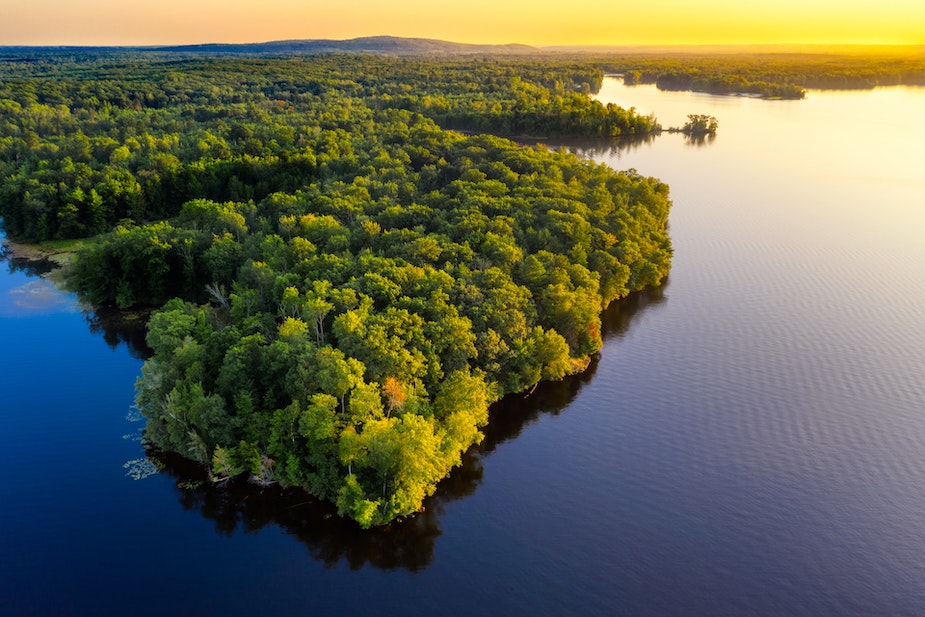
14,180 soil and plant scientists were employed in the US in May 2017, alongside 30,570 forest and conservation technicians and 8,300 foresters.
What are botanist education requirements?

How do I get a botany degree?

- Beginners Botany | Ecology Training UK | Online (Self-study course)
- Biological Recording and Ecological Monitoring | Manchester Metropolitan University | Shrewsbury, England (Master’s)
- Applied Ecology | SUNY – College of Environmental Science and Forestry | New York City, USA (Master’s)
- Ethnobotany | University of Kent | Canterbury, UK (MSc)
- Biology: Systematics and Evolution | University of Zurich | Zurich, Switzerland (Master’s)
- Tropical Forest Landscapes: Conservation, Restoration & Sustainable Use | Yale School of the Environment | Online (Postgraduate Certificate)
- Biodiversity and Taxonomy of Plants | University of Edinburgh | Edinburgh, UK (Postgraduate Diploma)
- Amazonian ABCs: Fundamentals of rainforest ecology in the Peruvian Amazon | Alliance for a Sustainable Amazon | Madre de Dios, Peru (Field course)
- Grass Identification | Ecology Training UK | Online (Self-study course)
What are the top botanist skills?
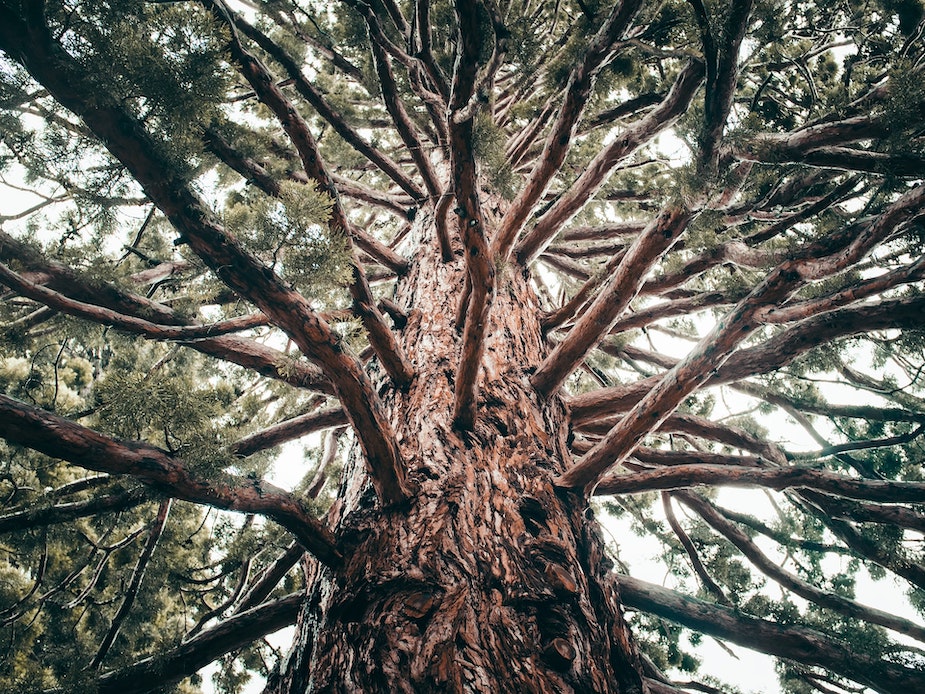
Pick a botanist job type of interest to explore skills and experience employers are looking for.
Field research & monitoring
Specialist skills
- Plant identification
- GPS
- GIS (ArcGIS, QGIS)
Transferable skills
- Communication skills
- Interpersonal skills
- Working independently with limited supervision
- Teamwork
- Organisational skills
- Attention to detail
- Self-motivation
- Positivity
- Flexibility, adaptability
- Walking or hiking in remote environments and arduous conditions, such as rough terrain, adverse weather conditions and bugs
- Working long days (e.g. 8-10 hours+) in the field, possibly with travel and irregular hours
- Physical fitness and able to carry 40-50 pounds
- Driver’s license and clean driving record
- Driving a 4×4 vehicle on unpaved roads
- CPR / First Aid
- Navigating in remote, wilderness situations using maps, compass, aerial photos, etc.
Experience
- Fieldwork experience and data collection
- Experience with field survey methods (e.g. floristic surveys, vegetation monitoring)
- Experience working in field crews
- Knowledge of local native and invasive plants
- Familiarity with local areas
Ecological consultancy
Specialist skills
- Plant identification (e.g. using a dichotomous key)
- Preparing technical biological reports
- Planning, coordinating and undertaking ecological fieldwork
- Analytical skills
- GIS
- GPS
Transferable skills
- Written and verbal communication skills
- Project, budget and client management
- Driver’s license
- IT literate
- Microsoft Office software
- Communication skills
- Navigation in remote areas using maps and GPS
- Organisational skills
- Working under pressure
- Adaptability to changing work requirements
- Attention to detail
- Working independently
- Teamwork
- Data management
- Technical writing skills
- Client relationships
Experience
- Ecological consulting experience
- Experience with field data collection methods and equipment
- Knowledge of environmental legislation / regulations
- Knowledge of native and non-native species
- Local experience
- Membership (e.g. CIEEM in the UK)
Restoration & remediation
Specialist skills
- Habitat restoration
- Invasive plant management

Specialist skills
- Plant ID (using a dichotomous key)
- Data analysis (e.g. R, SPSS)
- GIS
Transferable skills
- Data management
- Independent, self motivated
- Driver’s license and good record
- Using power tools e.g. for construction, repairs
- Working outdoors in extreme conditions
- Fundraising

- Experience in botanical garden plant collections management
- Plant health knowledge
- Ecology knowledge
Other jobs
Other specialist and transferable skills include:
- Publication record, published species discovery
- Molecular/phylogenomics and bioinformatics
- Taxonomic identification
- Giving presentations
What societies and professional organisations of botanists exist?

- The Botanical Society of America. Formed in 1893, this nonprofit membership society supports over 3,000 amateur to professional botanists from over 80 countries. The Society publishes journals; runs an annual conference; offers professional development opportunities, awards and grants; offers mentorship; and has a job board and online resources. With 15 special interest sections, it is a home for botanists of all interests!
- The American Society of Plant Biologists. Founded in 1924, the ASPB is a professional society with amateur to professional plant biologist members from six continents. It publishes journals, organises conferences and other educational activities, and offers awards and funding.
- The Botanical Society of Britain & Ireland. Founded in 1836, the BSBI “is for everyone who cares about the wild plants of Britain and Ireland.” It has a network of 100+ plant experts, publishes a membership magazine, offers training and study grants and supports evidence-based conservation of British and Irish flora.
- The Botanical Society of Scotland. Founded in 1836, the BSS welcomes all plant and fungi enthusiasts, from amateur to professional. They co-host an annual Scottish Botanists’ Conference, publish a scientific journal Plant Ecology & Diversity, and organise lectures, symposia, field excursions and field projects.
- The South African Association of Botanists. SAAB represents diverse academic botanical disciplines in South Africa. It holds an annual congress, offers awards and bursaries, hosts webinars and encourages student participation.
- The Botanical Society of South Africa. This member-driven organisation brings together citizen scientists, amateur nature enthusiasts, the general public, and environmental experts to help solve biodiversity challenges across South Africa. They run conservation projects and offer online resources like conservation webinars.
- The Canadian Botanical Association. As the national organization for amateur through professional botanists in Canada, CBA/ABC is open to botanists from all sectors and offers botanical resources and annual meetings and awards.
- The Canadian Society of Plant Biologists. Founded in 1958, the CSPB is a not-for-profit organization and registered charity with roughly 400 members – making it the largest plant science organization in Canada. It publishes a journal, Botany, and welcomes undergraduate and graduate students and professional scientists of diverse interests.
- The Australian Society of Plant Scientists. The ASPS is a community of tertiary and vocational lecturers and education specialists, primary and secondary school teachers, and researchers. It produces publications, organises a conference ‘ComBio’ and offers awards and funding.
- The Australian Systematic Botany Society. The ASBS is home to over 300 amateur to professional members. It organises conferences and meetings, offers funding for research projects and offers student support and awards.
- The Indian Botanical Society. Founded in 1920, the Society is open to anyone interested in botany. It publishes The Journal of the Indian Botanical Society and offers awards, honours and fellowships.
Meet botanist role models
- Carl Linnaeus, the “father of taxonomy”.
- Gregor Mendel, the “father of genetics”.
- George Washington Carver, an African-American agricultural scientist who improved the lives of farmers and promoted environmentalism, despite racial barriers.
- Alexander von Humboldt, a plant explorer who helped inform natural history and biogeography.
- Agnes Arbor, who helped us understand the anatomy of flowering plants (at a time when women weren’t permitted in the same laboratories as men…)
- Saving the Planet One Plant at a Time
- Work and study at one of UK’s most impressive horticultural centres – Kew Gardens
- Conservation is triage | Saving South Africa’s flora with botanist-conservationist Rupert Koopman
- A Champion of Plants – An interview with Matt Candeias, Botanist and Creator of the ‘In Defense of Plants’ Podcas
Search all the latest botanist jobs
Search all the latest botanist jobs on our Conservation Job Board.
FAQs
A botanist is a scientist who studies plants. Botanists can also be called plant scientists, plant biologists or ‘phytologists’.
Botany is a broad scientific field that encompasses all plants. Horticulture is a branch of botany and an applied science that focuses on edible and ornamental plants.
The average salary for a botanist in the United States is $78,523 a year and $38 an hour, with an average salary range of $56,078 to $96,979. The average salary of soil and plant scientists in the US is $69,170.
Most botanist jobs require an undergraduate (Bachelor’s) degree. Some more senior, specialised and/or research-focussed roles may require a master’s or PhD.
Approximately 3-4 years (the duration of an undergraduate degree). You may need additional experience to become employable and competitive.
If you want to work as a botanist, yes! Most botany-related jobs require an undergraduate (Bachelor’s) degree in botany, plant science, (plant) ecology or biology or conservation biology. Many also accept degrees in a related field such as environmental science, natural resources management, forestry or horticulture.
Some jobs prefer or require a master’s, while a PhD is often required for academic research and teaching jobs.
We always recommend identifying your target conservation job first, before determining if you need a degree.
Useful links & free stuff
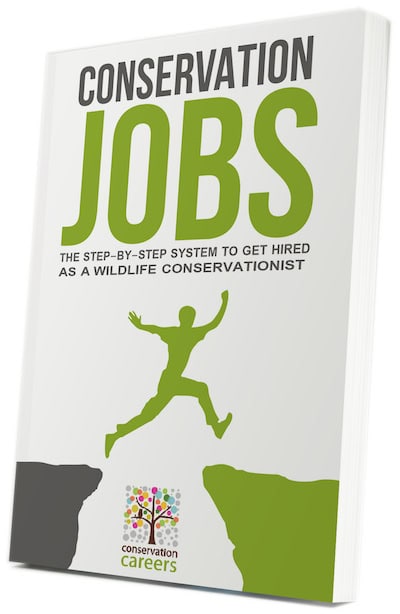 To help you navigate your options, please select which best describes you:
To help you navigate your options, please select which best describes you:- You want to work in conservation but you’re feeling lost, disillusioned or confused?!? Check out our Kick-Starter training designed to help you understand the job market, to navigate your career options, and to get hired more quickly. It’s designed for students, graduates, job-seekers and career-switchers. We’re proud to say it also has 100% satisfaction and recommendation ratings. We know you’ll love it. Find out more about our Kick-Starter – Online Course.
- You need answers to top questions about working in conservation? Check out our free Ultimate Guides covering topics like the 15 Key Conservation Job Types, Top Conservation Internships | Paid or Free and Marine Conservation Jobs, and answering questions like How to Switch Careers into Conservation, Do I need a Master’s Degree? and much more! Or download our free guides to keep and read later!
- You feel ready to be applying for jobs in conservation? Check out our membership packages for job seekers which provide access to the world’s biggest conservation job board – with over 10,000 conservation jobs shared each year – plus a range of other benefits. Check out our monthly memberships here.
- You’re submitting applications, but failing to get many interviews? Check out our FREE eBook Conservation Jobs: The Step-by-Step System to Get Hired as a Wildlife Conservationist – available on Kindle, EPUB and PDF. We can also review your applications, and provide 1:1 advice on how to improve them. Check out our application support here.
- You’ve got an interview (well done!) and would like our help to prepare for it? We know what employers want, and have helped many people prepare for and deliver successful interviews. Check out our interview preparation here.
- You’re feeling stuck, struggling with a career decision or something’s holding you back from pursuing the career of your dreams? Our 1:1 career coaching can help you gain clarity about your next steps and form a plan of action. Check out our career coaching here






